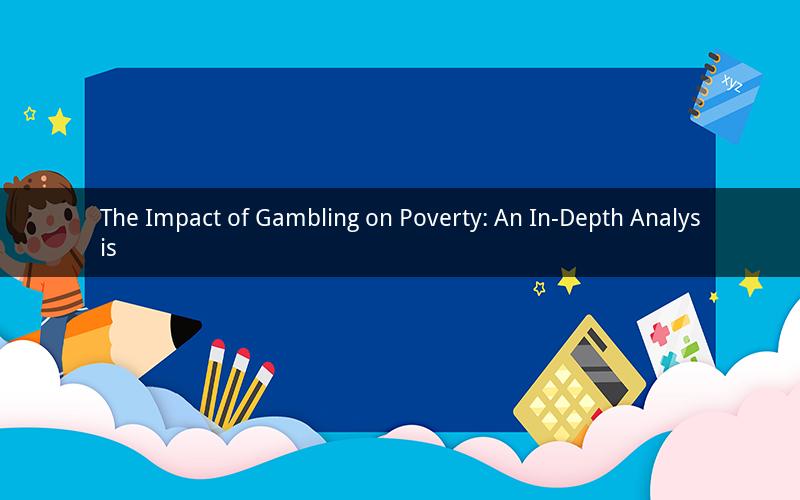
Introduction:
Gambling has been a subject of intense debate for years, with many questioning its impact on society, particularly in relation to poverty. This article delves into the various ways in which gambling can affect those living in poverty, exploring both the positive and negative consequences.
1. The Destructive Power of Gambling:
Gambling addiction can have devastating effects on individuals living in poverty. The allure of winning big can lead to excessive spending, debt, and ultimately, a deeper descent into poverty. For those struggling financially, the promise of quick wealth can be too tempting to resist, resulting in a cycle of dependency that is difficult to break.
2. The Role of Casinos and Betting Shops:
The proliferation of casinos and betting shops in impoverished areas has been a subject of concern. These establishments often target vulnerable individuals, offering easy access to gambling opportunities. The proximity of these venues to poverty-stricken neighborhoods can exacerbate the negative impact of gambling on those already struggling to make ends meet.
3. The Social and Economic Consequences:
The consequences of gambling addiction extend beyond the individual, affecting families, communities, and the economy as a whole. In many cases, gambling addiction leads to broken relationships, job loss, and increased reliance on social services. This, in turn, places a burden on taxpayers and further strains the resources available to those in poverty.
4. The Role of Education and Awareness:
Education and awareness play a crucial role in mitigating the impact of gambling on poverty. By providing individuals with the knowledge and tools to recognize and manage their gambling habits, society can help prevent the destructive cycle of addiction. This includes promoting responsible gambling practices, providing support services, and addressing the underlying factors that contribute to gambling addiction.
5. The Importance of Policy and Regulation:
Effective policy and regulation are essential in addressing the impact of gambling on poverty. Governments must implement measures that protect vulnerable individuals from the dangers of gambling addiction, such as age restrictions, deposit limits, and mandatory self-exclusion programs. Additionally, governments should invest in research and data collection to better understand the impact of gambling on poverty and develop targeted interventions.
FAQs:
1. How does gambling addiction affect individuals living in poverty?
Gambling addiction can lead to excessive spending, debt, and job loss, exacerbating the challenges faced by individuals living in poverty. The allure of winning big can make it difficult for those struggling financially to resist the temptation of gambling, resulting in a cycle of dependency.
2. Why do casinos and betting shops target impoverished areas?
Casinos and betting shops often target impoverished areas due to the high concentration of vulnerable individuals. These establishments exploit the desperation and hope for quick wealth, making it easier for individuals in poverty to fall into the trap of gambling addiction.
3. What are the social consequences of gambling addiction?
Gambling addiction can lead to broken relationships, job loss, and increased reliance on social services. The negative consequences of addiction can strain communities and place a burden on taxpayers, as resources are allocated to support those affected by gambling addiction.
4. How can education and awareness help mitigate the impact of gambling on poverty?
Education and awareness can help individuals recognize and manage their gambling habits, preventing the destructive cycle of addiction. By promoting responsible gambling practices and providing support services, society can help protect vulnerable individuals from the dangers of gambling addiction.
5. What role do policy and regulation play in addressing the impact of gambling on poverty?
Effective policy and regulation are essential in protecting vulnerable individuals from the dangers of gambling addiction. Governments should implement measures such as age restrictions, deposit limits, and self-exclusion programs to safeguard individuals in poverty from the negative consequences of gambling. Additionally, investment in research and data collection can help inform targeted interventions and policies.